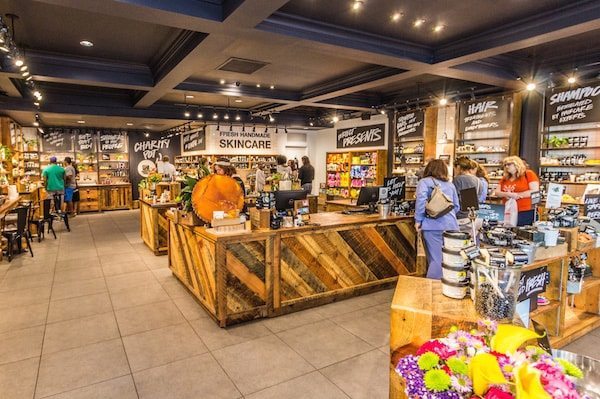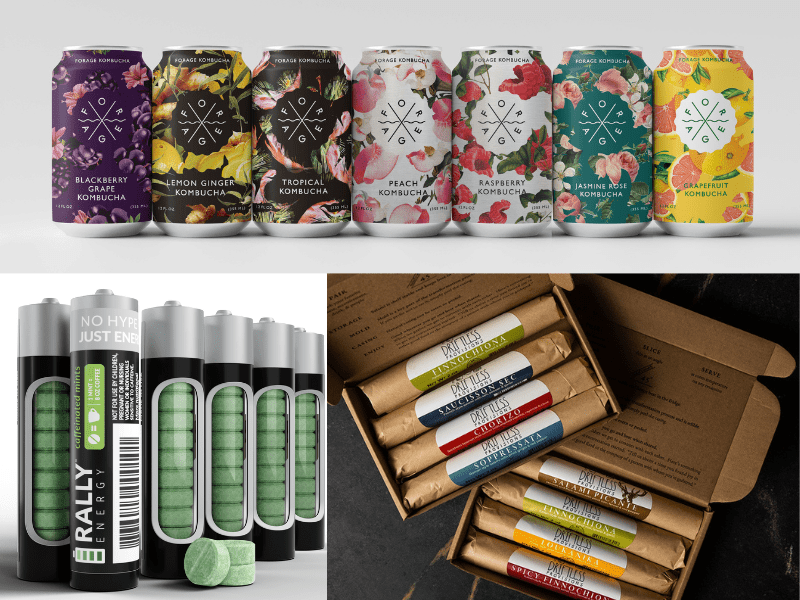The COVID-19 pandemic has disrupted the food supply chain like never before. With panic-buying clearing out retail shelves, foodservice sales slowing to a trickle and massive food dollars shifting to e-commerce—all in quick succession—the system’s longstanding gaps, biases and inefficiencies have been exposed and exacerbated. Today, food and farm businesses are feeling the pain of cold-chain storage shortages, meat-processing bottlenecks, insufficient delivery infrastructure, the list goes on.
Although the current supply chain upheaval is impacting companies of all sizes, it’s hitting small, scaling, often-underfunded food and farm businesses especially hard. Even though many are experiencing surging demand for their products—which is great—rapid growth brings on a whole new set of challenges that can be harder to deal with amidst a supply chain in chaos. And unlike big companies with deep pockets, the little guys must navigate these issues with limited resources.
For example, how do they keep customers interested when their inventory keeps selling out? How do they build back inventory when ingredients are in short supply? How do they deal with logistics issues beyond their control, such as when a truckload of frozen products goes to waste because it wasn’t unloaded at the fulfillment center in time, leaving consumers without the food they ordered?
While there are no easy remedies for supply chain challenges, small brands and farmers do have a powerful tool to encourage consumers to continue on this journey with them: transparency. This has always been important, especially for mission-based businesses that support or practice ethical, sustainable and regenerative agriculture and therefore may ask higher prices for their products than conventional brands do.
But today, as consumers crave authenticity and honesty—and as businesses are facing unprecedented challenges that belie their best efforts—transparency is paramount. But beyond just educating consumers about a company’s mission or offerings or how regenerative farming or ranching yields better products—all of which are important—businesses should consider being open about the logistical realities of the supply chain right now. As Tera and The Honest Bison founder Sean Lenihan discuss on the latest Edible-Alpha® podcast, the system today is not clean, it’s not a well-oiled machine, and many hitches that arise aren’t the brand or farmer’s fault. Rather, they stem from the mechanisms in between them and the consumer.
Therefore, educating consumers about what it takes to get them high-quality food can go a long way. It may even assuage some of the bumps that they experience, such as not receiving the items they ordered on schedule. In Sean’s experience, not every customer will be patient and understanding—or even care—but many will. They might even be frustrated, but they’ll appreciate straight talk and be more likely to give the company another shot.
This is next-level transparency. It won’t stop the supply chain challenges from coming, but it can make dealing with them a little easier and help businesses hold onto customers in the process.
Listen to the podcast here!

Register Today!

Learn how impact investing can transform our food system through lively interviews with famous founders and integrated business pitches from innovative companies on the rise. Hosted by FFI director and Edible-Alpha® podcast host Tera Johnson, this lively event is a can’t miss for food and farm entrepreneurs! Also join us for the Edible-Alpha® Live! Kickoff event December 8th featuring Lost Creek Farm.
And now, our roundup of the best food and beverage finance news, events and resources from around the web…

Business Model Insights
- COVID-19 impact underscores need, ability for industry to tackle sustainability goals (FoodNavigator-USA) Farmers and ranchers have long dealt the ramifications with catastrophic weather events, but the pandemic has shown that stakeholders across the supply chain must collaborate and accelerate sustainable solutions.
- 4 things to know about Amazon’s ‘Climate Pledge Friendly’ program (New Hope Network)
- 3 branding tips to follow in the age of antiracism (New Hope Network)

Raising Capital
- From privately held to publicly traded, should small companies take the plunge? (Food Dive) Going public provides greater exposure and more access to capital, but it comes with drawbacks such as regulatory requirements and short-term growth targets shunned by many CEOs.
- Crowdfunding surges in pandemic to open doors for emerging brands (FoodNavigator-USA)
- PPP loans were supposed to be forgiven. Business owners say they’re still waiting (Vox)
CPG/National Brands
- Consumer companies pitch discounts, bargain products as economic malaise looms (Reuters) Big food manufacturers are promoting lower-priced brands, smaller packages and discounts to attract shoppers struggling through the global recession.
- Annie’s mac and cheese has always saved mealtime. Now it’s saving the planet (Fast Company)
- How did Trader Joe’s weather the pandemic better than Whole Foods? (The Takeout)

Market Trends
- The future of fresh (Deloitte Insights) Sales of fresh food are way up, but beneath the top-level success lies a category changed by the pandemic. The industry now confronts disrupted consumer buying patterns, accelerated trends, the rise of new concerns and a recalibration of priorities.
- How consumers soothe their 2020 stress (New Hope Network)
- U.S. consumers preparing for second wave of stockpiling (Supermarket News)

Farming and AgTech
- Are Democrats missing a fundamental issue for rural voters? (Food & Environment Reporting Network) “A Democrat with a Ph.D. in rural sociology, this third-generation farmer believes her party is sorely out of touch with an issue that resonates deeply in conservative heartland communities: countering the monopolistic level of corporate power that has emerged in agribusiness over the past 40 years.”
- The Pandemic Has Given Organics a Big Boost—But Most Profits Aren’t Flowing to Small Producers (Civil Eats)
- The Pandemic Has the Potential to Finally Transform Meat Processing in the U.S. (Civil Eats)

Deals/M&A
- Rodale Institute invests $2 mil to grow organic acres (Rodale Institute blog) Impact investment with Iroquois Valley Farmland REIT will provide farmer-friendly leases, mortgages, and lines of credit for farmers transitioning to organic.
- Apeel raises $30m, ‘invisible’ skin helps growers in emerging markets gain access to US, Europe (FoodNavigator-USA)
- Hershey takes stake in snack maker Quinn for undisclosed amount (Food Dive)

Virtual events
- PACK EXPO Connects: 11/9–11/13
- FFI Scaler Series: Financial & Accounting Processes Workshop: 11/10
- Spark Celebration: 11/10–11/11
- Virtual American Food Manufacturing Summit 2020: 11/10–11/11
- Digital Food & Beverage Connect Virtual Event: 11/16–11/17
- Nutrition Capital Network Fall Investor Meeting: 11/18–11/19
- Fi Europe Connect: 11/23–12/4
- Midwest Food Products Association Virtual Summit & Processing Crops Conference: 12/2
- Edible-Alpha® Consultant Huddle: 12/7 at 1 p.m. CDT
- BevNET Live Winter 2020: 12/7–12/9
- Edible-Alpha® Live! Kickoff Event: 12/8
- Edible-Alpha® Live!: 12/9


